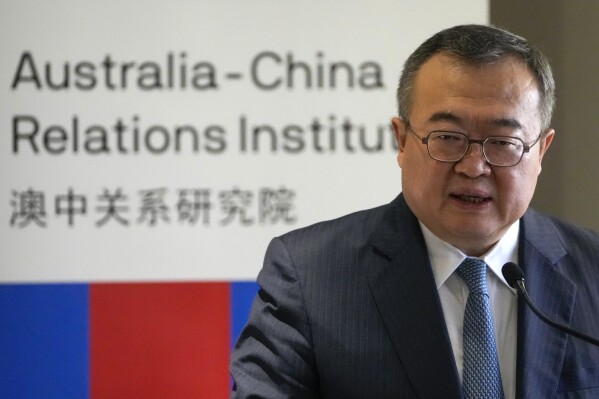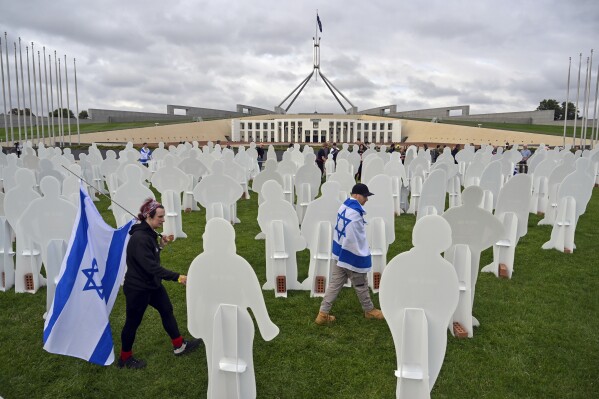Australia apologizes for thalidomide tragedy as some survivors listen in the Parliament gallery
CANBERRA, Australia (AP) — Survivors of the harmful morning sickness drug thalidomide were in the public gallery Wednesday when Australia’s Parliament made a national apology to them on the 62nd anniversary of the drug being withdrawn from sale in the country.
Thalidomide, also sold under the brand names Contergan and Distaval, was available in 46 countries and caused birth defects, stillbirths and miscarriages.
Survivors with limb deformities and one with no limbs were in the House of Representatives gallery to hear Prime Minister Anthony Albanese’s apology.
“Today, on behalf of the people of Australia, our government and this Parliament offers a full unreserved and overdue apology to all thalidomide survivors, their families, loved ones, and carers,” Albanese said.
 China warns Australia to act prudently in naval operations in the South China Sea
China warns Australia to act prudently in naval operations in the South China Sea
 Relatives and a friend of Israelis kidnapped and killed by Hamas visit Australia’s Parliament House
Relatives and a friend of Israelis kidnapped and killed by Hamas visit Australia’s Parliament House
 India beats Australia by 44 runs to take a 2-0 lead in Twenty20 cricket series
India beats Australia by 44 runs to take a 2-0 lead in Twenty20 cricket series
“This apology takes in one of the darkest chapters in Australia’s medical history,” he added.
Doctors had assured pregnant women that the drug was safe.
“There was no system for properly evaluating the safety of medicines, and the terrible cruelty of thalidomide, is that far from being safe, just one dose was enough to cause devastating harm,” Albanese said.
Trish Jackson, who has heart and lung problems as well as limb deformities caused by her mother taking the drug while pregnant, welcomed the apology.
“All those years of ... banging our heads against brick walls of politicians have finally paid off,” Jackson told Australian Broadcasting Corp.
The apology was recommended in 2019 by a Senate inquiry into the support that was available to aging thalidomide survivors.
The government will fulfill another recommendation Thursday by opening a memorial in Canberra in recognition of thalidomide survivors and their families.
Australia established a support program in 2020 that is providing lifelong assistance to 148 survivors, and Albanese said his government was reopening the program to survivors who had yet to register.
Jackson said the support program needed to be simplified.
“It is so physically demanding to get anything back like for medications and stuff that ... a lot of survivors just don’t bother because it’s too hard for them to do it,” Jackson said.
She said some doctors had never heard of thalidomide and did not understand survivors’ problems.
“It’s not just the missing limbs. There’s so much internal damage as well,” Jackson said. “Thalidomide’s a drug that just keeps on giving us problems.”
A class-action lawsuit by Australian and New Zealand thalidomide survivors against the drug’s British distributor Diageo Scotland Ltd. was settled a decade ago for 89 million Australian dollars ($81 million).
Disclaimer: The copyright of this article belongs to the original author. Reposting this article is solely for the purpose of information dissemination and does not constitute any investment advice. If there is any infringement, please contact us immediately. We will make corrections or deletions as necessary. Thank you.
